Hives
If you experience hives or any other skin condition, it is essential to seek advice from a skin specialist or dermatologist. A healthcare professional can perform a comprehensive examination to pinpoint the exact cause of the hives. This examination might include a review of your medical history, allergy tests, and possibly blood tests to identify underlying issues.
The dermatologist will then develop a personalized treatment plan aimed at addressing the specific triggers and alleviating symptoms.
Examples of Hives
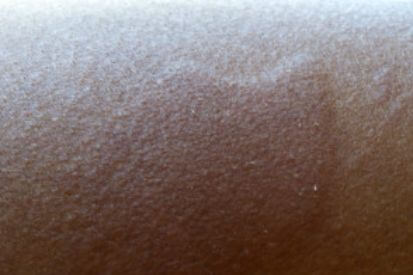
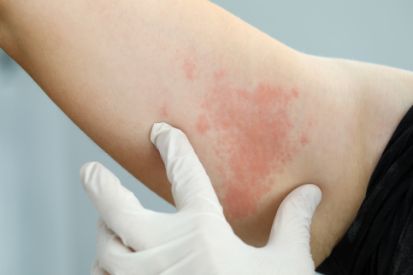
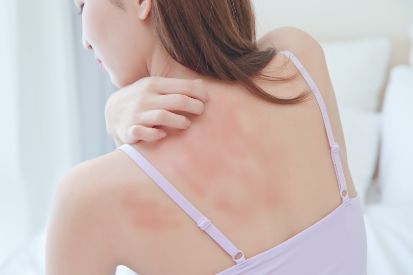
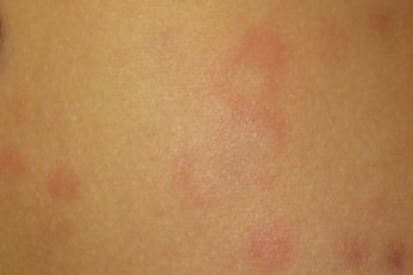
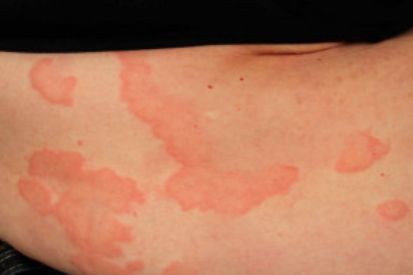
What are the Symptoms of Hives?
- Hives, or urticaria, is an itchy skin rash that present as raised, itchy welts on the skin that vary in size and shape.
- Hives can appear suddenly and often migrate, causing discomfort.
- Symptoms may resolve within hours but can persist.
- Severe cases can involve swelling of the face, lips, or throat, requiring prompt medical attention.
What are the Causes of Hives?
- Reactions to certain foods, medications, insect stings, or pollen.
- Viral or bacterial infections.
- The body's immune system mistakenly attacking its own tissues.
- Adverse reactions to certain drugs.
- Exposure to heat, cold, pressure, or sunlight.
- Emotional stress can trigger hives in some individuals.
- Chronic conditions like thyroid disorders or lupus.
How to Prevent Hives
FAQs on Hives
You should see a dermatologist for hives if the rash persists for more than a few days, recurs frequently, or causes significant discomfort. Additionally, if over-the-counter treatments such as antihistamines do not alleviate the symptoms, it is important to seek professional advice. Hives that are accompanied by other symptoms like difficulty breathing, swelling of the lips or face, or a rapid heartbeat require immediate medical attention, as these could indicate a more severe allergic reaction known as anaphylaxis.
A dermatologist can provide a comprehensive evaluation to determine the underlying cause of your hives. This may involve a detailed medical history, allergy testing, and other diagnostic methods. By identifying specific triggers and recommending appropriate treatments, a dermatologist can help manage your symptoms effectively and prevent future outbreaks, ensuring better overall skin health and quality of life.
Yes, stress can trigger hives. When you experience stress, your body releases various chemicals, including histamines, which can lead to the development of hives. These stress-induced hives appear as raised, itchy welts on the skin and can vary in size and shape. The connection between stress and hives is well-documented, with emotional stress, anxiety, and physical stressors all capable of precipitating an outbreak.
Managing stress is a crucial aspect of preventing stress-induced hives. Techniques such as mindfulness, meditation, regular exercise, and adequate sleep can help reduce stress levels. If you frequently experience hives due to stress, it is advisable to consult a dermatologist or healthcare provider. They can provide guidance on effective stress management strategies and recommend treatments to alleviate the symptoms of hives, ensuring better overall skin health and well-being.
If you suspect that hives are due to an allergic reaction, it’s crucial to seek medical attention promptly. Dermatologists can evaluate your condition, prescribe antihistamines or other medications to alleviate symptoms, and help identify and manage the specific allergen responsible. Early intervention and professional guidance are essential for effective treatment and prevention of future reactions.
Yes, if you have hives, particularly those triggered by food allergies, it is essential to identify and avoid the specific foods causing your reaction. Here are some key points to consider:
Common Trigger Foods: Certain foods are more commonly associated with triggering hives. These include:
- Nuts: Peanuts, tree nuts (such as almonds, walnuts, and cashews).
- Shellfish: Shrimp, crab, lobster, and other seafood.
- Fruits: Strawberries, citrus fruits, and tomatoes.
- Dairy Products: Milk, cheese, and yogurt.
- Eggs: Especially the egg whites.
- Wheat: Can be a trigger for some individuals.
Elimination Diet: Dermatologists may recommend an elimination diet to help identify the specific food triggers. This involves removing suspected allergens from your diet and then gradually reintroducing them one at a time to observe any reactions.
Allergy Testing: To accurately identify food allergens, dermatologists can conduct allergy tests such as skin prick tests or blood tests. These tests help pinpoint the exact foods causing your hives.
Reading Labels: Once you know your triggers, it is important to carefully read food labels to avoid hidden allergens. Ingredients can sometimes be listed under different names, so being vigilant is key.
Cross-Contamination: Be aware of cross-contamination, especially when dining out or preparing food at home. Even small amounts of an allergen can trigger hives.
Consult a Dermatologist: Regular consultations with a dermatologist can provide ongoing support and guidance. They can help you develop a comprehensive plan to manage your diet and avoid triggers effectively.
Treatment Options for Hives
Consulting with your dermatologist will provide the best treatment options for your specific condition. Schedule with us today.
Featured Blogs
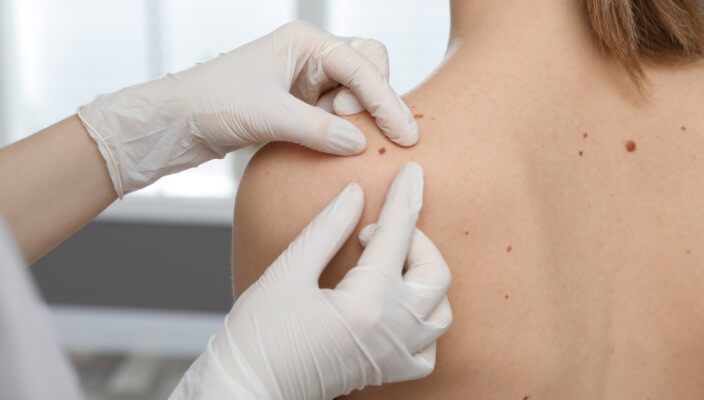
- Skin Cancer
- General Dermatology
- Skin Exams
Navigating the landscape of Total Body Skin Exams: Uncover the comprehensive process, understand why it matters for skin health, and gain insights into what to expect during these essential dermatological examinations.
Read More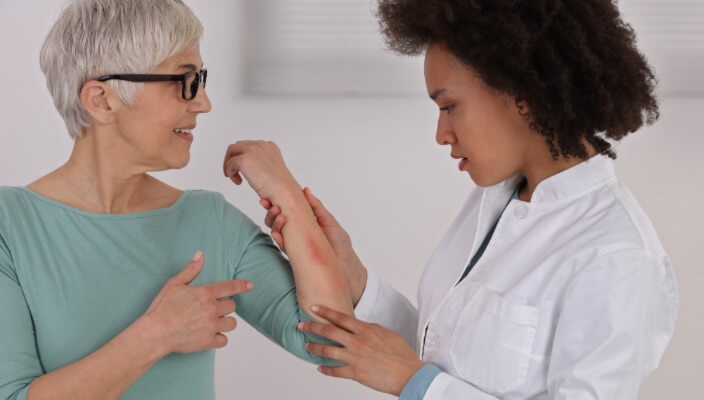
- General Dermatology
- Chronic Skin Conditions
Eczema, a chronic skin condition characterized by inflammation and intense itching, can be challenging to manage, especially during flare-ups.
Read More
- General Dermatology
- Skin Care
- Chronic Skin Conditions
Hormonal acne can be a pesky skin problem for many. The only way to address this is by finding a hormonal acne treatment that works for you and your unique skin.
Read MoreFeatured Products
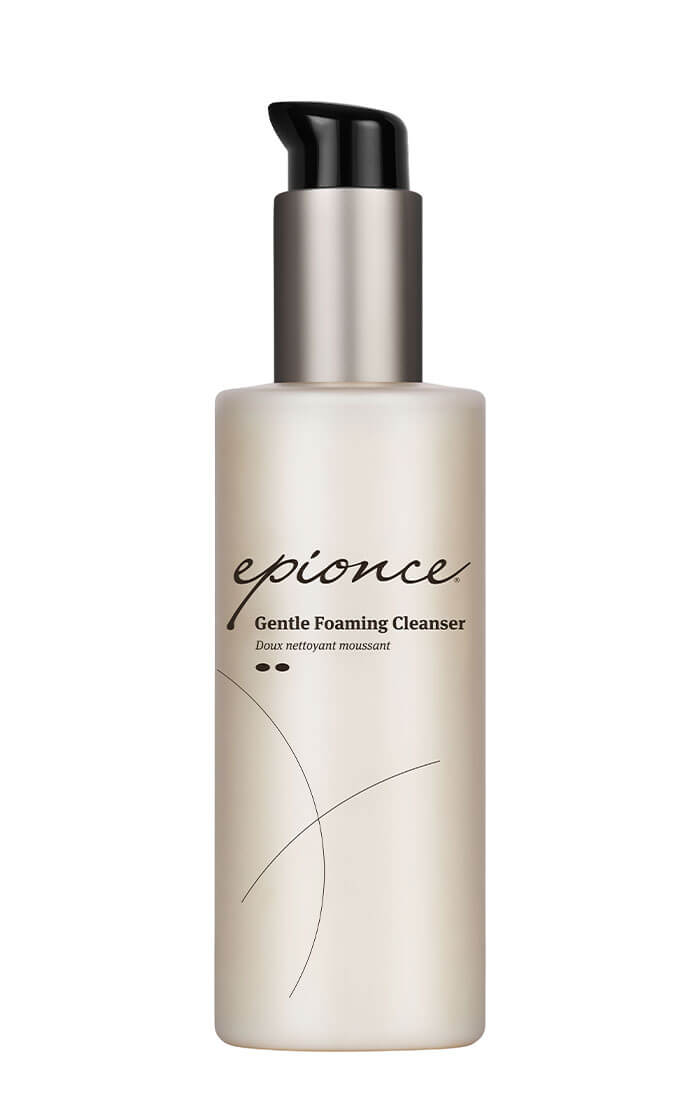
Epionce Gentle Foaming Cleanser
A must-have cleanser for normal to combination skin, Gentle Foaming Cleanser effectively removes dirt, oil and other surface impurities including makeup without leaving the skin feeling tight, dry or stripped of its natural protective oils.
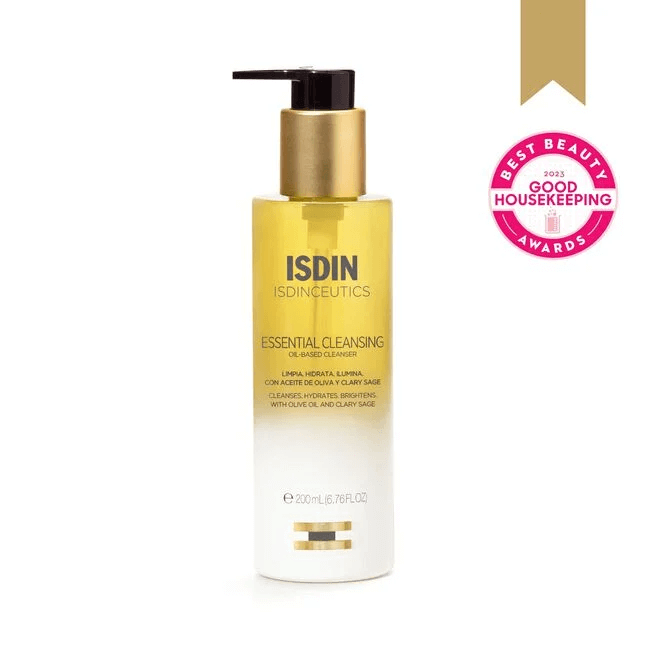
ISDIN Essential Cleansing 200mL
Essential Cleansing is a gentle yet powerful facial cleansing oil with an oil-to-milk texture that melts away impurities to deeply cleanse skin. Just add water to transform the oil into a pleasant emulsion that leaves skin soft and hydrated. 200 mL


